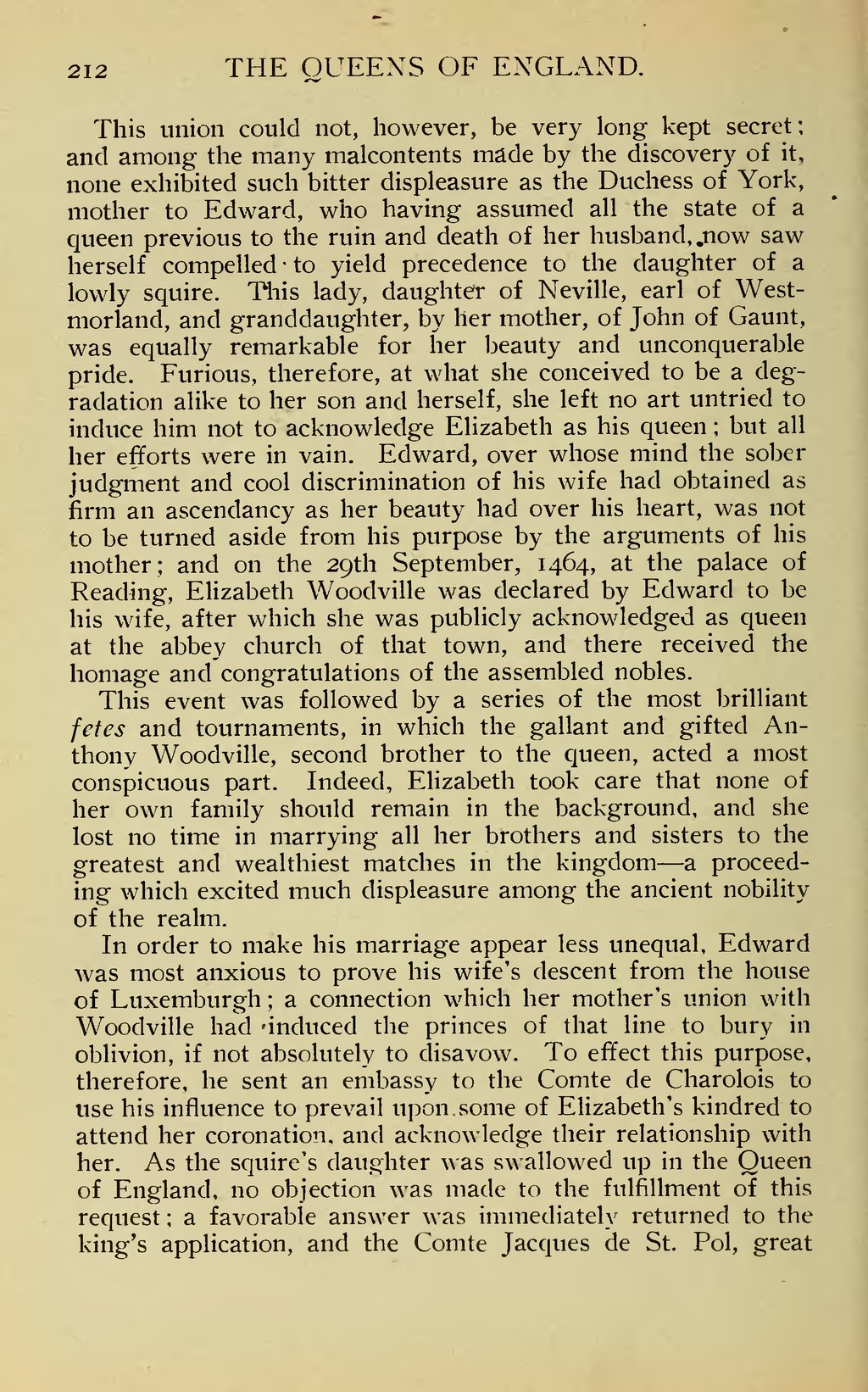212 THE QUEENS OF ENGLAND. This union could not, however, be very long kept secret; and among the many malcontents made by the discovery of it, none exhibited such bitter displeasure as the Duchess of York, mother to Edward, who having assumed all the state of a queen previous to the ruin and death of her husband,. now saw herself compelled ■ to yield precedence to the daughter of a lowly squire. This lady, daughter of Neville, earl of West- morland, and granddaughter, by her mother, of John of Gaunt, was equally remarkable for her beauty and unconquerable pride. Furious, therefore, at what she conceived to be a deg- radation alike to her son and herself, she left no art untried to induce him not to acknowledge Elizabeth as his queen ; but all her efforts were in vain. Edward, over whose mind the sober judgment and cool discrimination of his wife had obtained as firm an ascendancy as her beauty had over his heart, was not to be turned aside from his purpose by. the arguments of his mother; and on the 29th September, 1464, at the palace of Reading, Elizabeth Woodville was declared by Edward to be his wife, after which she was publicly acknowledged as queen at the abbey church of that town, and there received the homage and congratulations of the assembled nobles. This event was followed by a series of the most brilliant fetes and tournaments, in which the gallant and gifted An- thony Woodville, second brother to the queen, acted a most conspicuous part. Indeed, Elizabeth took care that none of her own family should remain in the background, and she lost no time in marrying all her brothers and sisters to the greatest and wealthiest matches in the kingdom — a proceed- ing which excited much displeasure among the ancient nobility of the realm. In order to make his marriage appear less unequal, Edward was most anxious to prove his wife's descent from the house of Luxemburgh ; a connection which her mother's union with Woodville had 'induced the princes of that line to bury in oblivion, if not absolutely to disavow. To effect this purpose, therefore, he sent an embassy to the Comte de Charolois to use his influence to prevail upon. some of Elizabeth's kindred to attend her coronation, and acknowledge their relationship with her. As the squire's daughter was swallowed up in the Queen of England, no objection was made to the fulfillment of this request ; a favorable answer was immediately returned to the king's application, and the Comte Jacques de St. Pol, great
